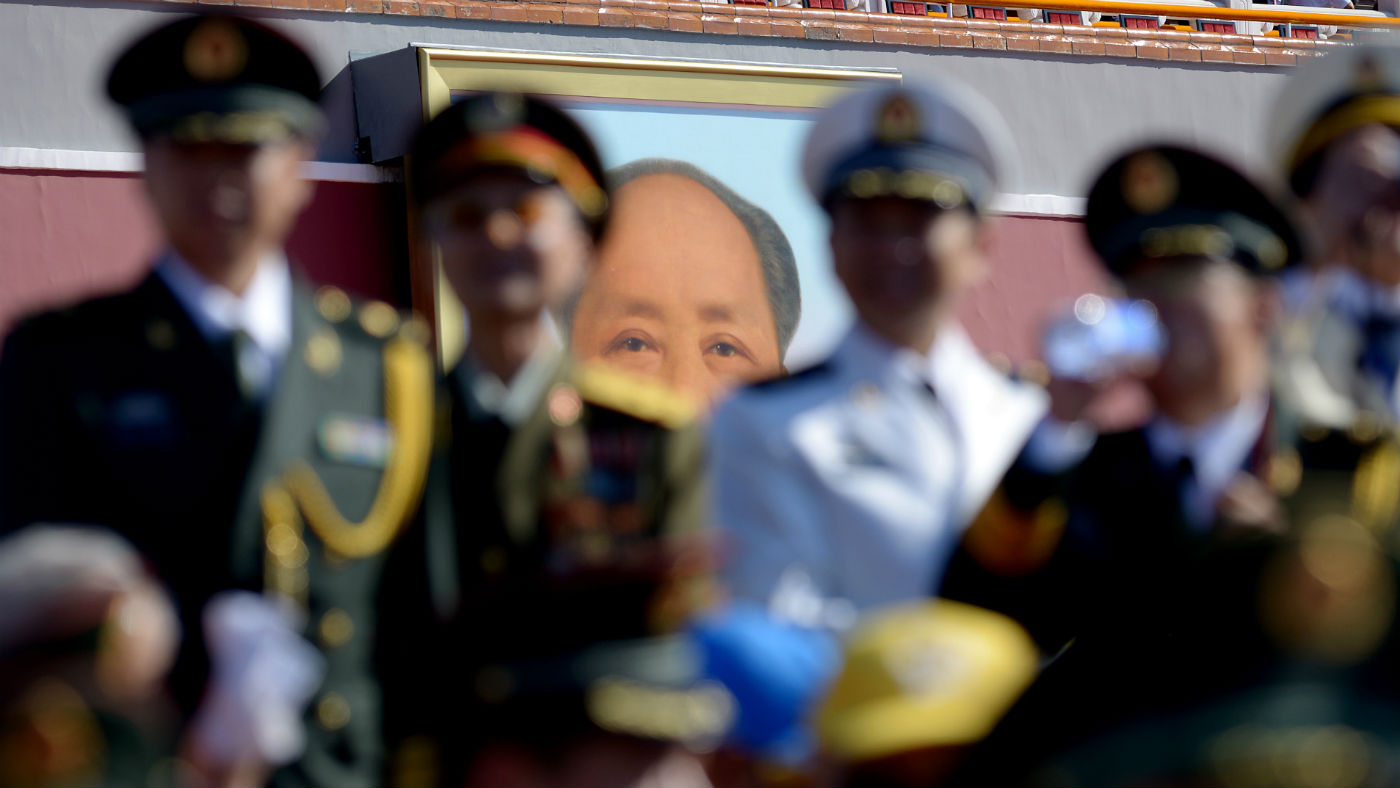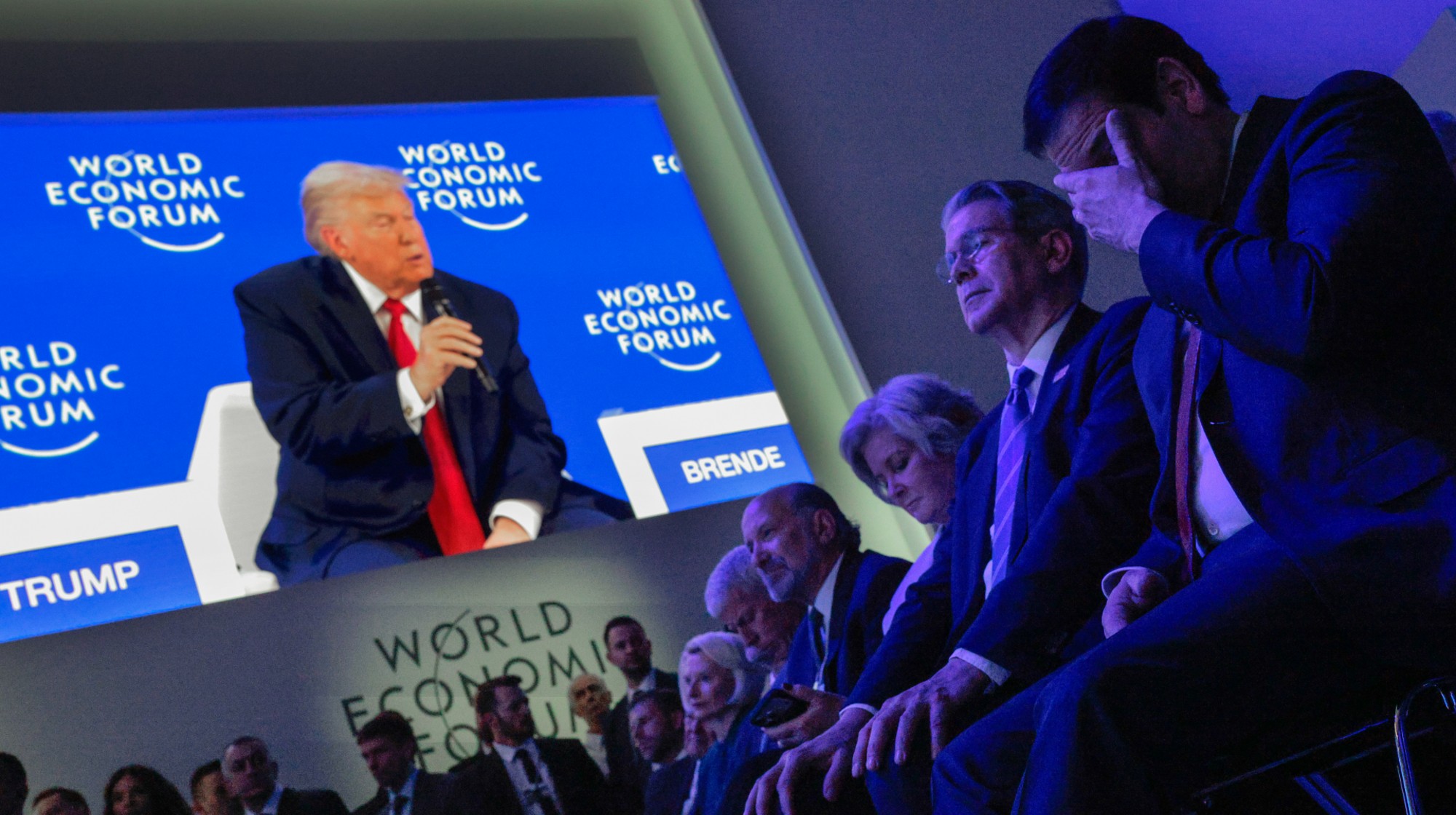China and Russia ‘preparing for war with West’
Experts warn of military brinkmanship as Trump plans to increase defence spending

A free daily email with the biggest news stories of the day – and the best features from TheWeek.com
You are now subscribed
Your newsletter sign-up was successful
China and Russia could soon match the military might of the US and her allies - and the decline of western supremacy could lead to all-out war.
Those are the conclusions of a report by the International Institute of Strategic Studies (IISS), which says that although war between the great powers is not inevitable, Washington, Moscow and Beijing are now preparing for the possibility.
The IISS’s annual Military Balance 2018 report sets out at length how China’s leadership has stepped up its military programme in recent years, with huge spending on new technology that could give it an advantage on land, sea and air.
The Week
Escape your echo chamber. Get the facts behind the news, plus analysis from multiple perspectives.

Sign up for The Week's Free Newsletters
From our morning news briefing to a weekly Good News Newsletter, get the best of The Week delivered directly to your inbox.
From our morning news briefing to a weekly Good News Newsletter, get the best of The Week delivered directly to your inbox.
The opening of China’s first overseas military base in Djibouti will enable it to carry out missions over vast distances, and has been viewed as a major statement of intent.
While the pace of militarisation is slower in Russia, partly due to a shortage of funding and industrial capacity, the country is “benefiting from experience of real life combat in Syria and Ukraine and has shown extensive capabilities in the field of hybrid warfare including cyber attacks”, says The Independent.
The Foreign Office said last night that the Russian military was reponsible for the NotPetya cyber attack on Ukraine last year.
In a bid to combat the growing threat posed by Russia and China, reports CNN, the US Pentagon is asking for a boost in military spending for 2019, requesting Congress approve a budget of $686bn - one of the largest in US history.
A free daily email with the biggest news stories of the day – and the best features from TheWeek.com
The budget proposal also included cuts to international diplomacy and overseas aid.
Touting the plans earlier this week, Donald Trump said the additional spending would make the US military the strongest it has ever been, with “increasing arsenals of virtually every weapon”.
But Dr John Chipman, the chief executive of the IISS, said the US could still find itself outgunned.
“Some governments in the West will look to ‘leap-ahead’ technologies to augment and even deliver military power,” he said, “but these are no guarantee of success.”
-
 The ‘ravenous’ demand for Cornish minerals
The ‘ravenous’ demand for Cornish mineralsUnder the Radar Growing need for critical minerals to power tech has intensified ‘appetite’ for lithium, which could be a ‘huge boon’ for local economy
-
 Why are election experts taking Trump’s midterm threats seriously?
Why are election experts taking Trump’s midterm threats seriously?IN THE SPOTLIGHT As the president muses about polling place deployments and a centralized electoral system aimed at one-party control, lawmakers are taking this administration at its word
-
 ‘Restaurateurs have become millionaires’
‘Restaurateurs have become millionaires’Instant Opinion Opinion, comment and editorials of the day
-
 Epstein files topple law CEO, roil UK government
Epstein files topple law CEO, roil UK governmentSpeed Read Peter Mandelson, Britain’s former ambassador to the US, is caught up in the scandal
-
 Iran and US prepare to meet after skirmishes
Iran and US prepare to meet after skirmishesSpeed Read The incident comes amid heightened tensions in the Middle East
-
 Israel retrieves final hostage’s body from Gaza
Israel retrieves final hostage’s body from GazaSpeed Read The 24-year-old police officer was killed during the initial Hamas attack
-
 China’s Xi targets top general in growing purge
China’s Xi targets top general in growing purgeSpeed Read Zhang Youxia is being investigated over ‘grave violations’ of the law
-
 Panama and Canada are negotiating over a crucial copper mine
Panama and Canada are negotiating over a crucial copper mineIn the Spotlight Panama is set to make a final decision on the mine this summer
-
 Trump backs off Greenland threats, declares ‘deal’
Trump backs off Greenland threats, declares ‘deal’Speed Read Trump and NATO have ‘formed the framework for a future deal,’ the president claimed
-
 Why Greenland’s natural resources are nearly impossible to mine
Why Greenland’s natural resources are nearly impossible to mineThe Explainer The country’s natural landscape makes the task extremely difficult
-
 Iran cuts internet as protests escalate
Iran cuts internet as protests escalateSpeed Reada Government buildings across the country have been set on fire